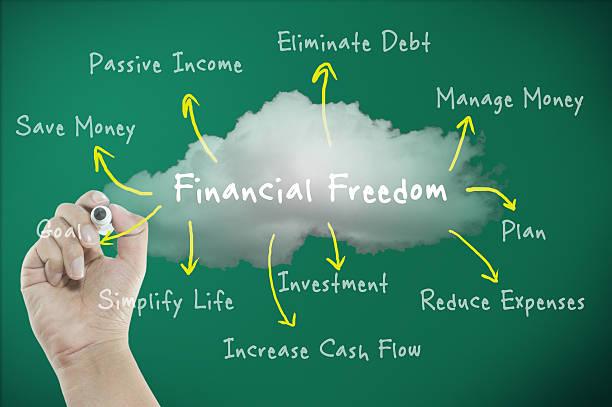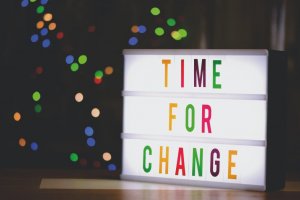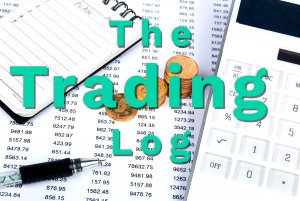There is a very wide concept of Financial Independence that I don’t like, and it would be more or less this: An investor reads Kiyosaki and his “Rich Father, Poor Father”, and likes the concepts of “rat race”, “passive income vs income from work”, “financial independence”, etc. From there, the investor draws the conclusion that to be happy, he has to earn enough money to stop working and live off income at 50.
While the concepts of Kiyosaki do not displease me at all, the conclusion drawn by the investor seems terrible to me. At the income level, wanting to maximize them will lead you to look for the job that allows you to earn more money, not the one you like to do. And probably, to give him a lot of hours, and sacrifice any personal issues for the sake of thriving on the job. At the expense level, scissors for everything; euro I earn, euro saving. Getting out is expensive, holidays are expensive, maybe even children are expensive…
If he’s lucky, the investor will have a shitty life until he’s 50 (pity his best years), and then he’ll be able to live without work… which will seem very desirable after many years of investing a very large amount of hours in a job he didn’t like; but for that, you need to have saved a lot of money and the investments have gone well, and maybe the investor does not have enough at 50 and has to continue until 60…
And then what? The investor can live without work… what a thing. That’s not as good as it sounds, I’ve seen several cases of people starting startups and selling them for millions, and these people don’t stay out of work after that, as much as they could spare; a few months off, yes, but then they look for some activity again, because it’s the way to feel fulfilled, and it’s so much better than just living on rent. And that’s the financial independence I don’t like. But unfortunately, there are many investors out there… This concept of financial independence is widespread.

Going back to the basics, Kiyosaki-san, what he says is that the lack of savings closes your options and makes you miss out on opportunities for improvement, and that’s where the key point for me is. The right aspiration is not to work, but not to have to stagnate in a bad job (it can be bad because of the salary, or for any other reason that makes you not like it). And to achieve this, you need some savings (but not far enough to be able to live without working), and something to move us in the right direction.
For example, suppose the investor is working as a private employee in a banking office, charging little and displeasing because he has to place bad products on customers. Instead of striving to become a director and collect many bonus targets, the investor starts to think about what he would like to do, and comes to the conclusion that he might like to be a photographer. So he talks to people who are working as photographers (in the press, at weddings, etc.) and he doesn’t see clearly that he can make enough money making the kind of photographs he would like, and he ends up dismissing (or at least parking) the photographer at a professional level; What else would you like to do? Maybe be a cook and have your own restaurant… Repeat the process, talking to restaurant owners cooks, and although not all is pink (restaurant schedules, paperwork for owning the business), he does see it as viable to make enough money doing the kind of cooking he would like, so he decides to try.
But as Kiyosaki says, to have options you need money; to open a restaurant is expensive, and to be able to pass without the payroll of the bank also, so the investor mounts a financial plan:
At the level of income, instead of killing oneself in the bank to earn more, what he tries is to get some job on weekends in restaurants; preferably as a cook, but also as a waiter, because if he is going to be the owner of the business it is convenient to have a global vision. In addition, he always finds a little time to talk to the business owner and tells them that he also wants to set up a restaurant in five years, so they can give him advice and tell him about their experience. What they tell you confirms that it is something you want to do, and also gives you some ideas (it seems that employee management is more difficult than it seems, and you start reading things on the internet about the subject). And in the meantime, the extra income he needed is falling; 5,000 euros a year.
At the expense level, the investor discovers that with a little consideration it is easy to reduce the electricity bill by 10 euros (25 in the winter months), another 10 euros per month on the telephone bill, another 30 euros a month canceling some subscriptions to things that didn’t really bring anything to him, puts the scissors in the car (in his case, taking the subway to go to the center, avoiding the expense in parking) and postpones to the next year the renewal of the mobile; But it keeps the holidays intact, the food, the clothes, the Netflix… the things he really enjoys. And in leisure, spending is maintained, but now spending less on cinema and more on restaurants, for seeing the market. In total he has saved 1500 euros a year, which is not too much… but it helps, and he has not had to lose quality of life to get it.

A year and a half later, the investor already has experience as a cook, knows the business, and has very good contacts in the sector. And one of them has had a casualty, and who first thinks to cover it is the investor who quickly accepts; now earns the same as he earned in the bank, but is in a job that he finally likes, which is a very important improvement, and he’s still on the road to having his own restaurant…
History may have many paths from here, but the good news is that it will almost certainly end well:
You can progress in this restaurant, or you can jump to one where they pay a lot or one where the investor learns a lot from the hand of a chef he admires.
You may discover the niche of “restaurant photographer”, and end up recovering your original vocation.
He may be comfortable as a cook in someone else’s restaurant and decide to stay (hey, dreams change!), or he may end up buying a restaurant in 3-5-10 years, or he may start a new one.
“People assume that if you try to get the maximum money, you will get the maximum money; however, the reality is that if you do what you like, you will probably do better than if you do things that you only do for money, And on not a few occasions you will end up standing out and maybe you will earn more money than if you focus only on money!”
Maybe your business is going well, maybe it’s going badly. If it goes wrong and you had a lot of debt to ride it, you will have problems (it is the only bad way). If he does badly but didn’t get into too much debt, he’ll go back to being a cook (which is much better for him than the bank), and maybe in the future, he’ll try again…
As you can see, in this new history of the investor there appear many concepts of financial independence, but not the desire to live off income without working. Oddly enough… if the investor’s restaurant is doing well, he still has enough money to live without working.






